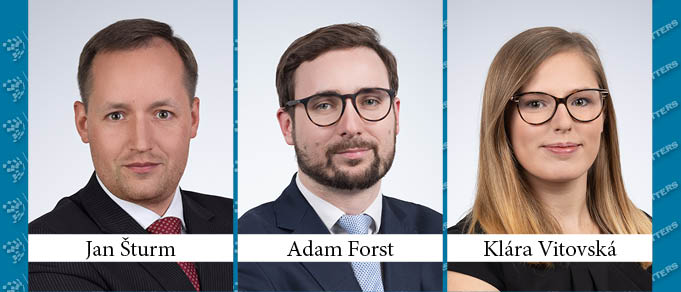On 1 January 2021, the new Act No. 254/2019 Sb., on Experts, Expert Offices and Expert Institutes (the Act on Experts), entered into force, replacing Act No. 36/1967 Sb., on Experts and Interpreters. This is undoubtedly the most significant change in this area in the last 30 years. Below is a selection of the most important changes:
1. Introduction of an “expert offices” category
As before, expert activities may be performed by experts or expert institutes. However, the expert institutes category is now reserved only for entities such as universities, public research institutions, etc., which perform scientific research activities. The “expert offices” category is newly introduced for business corporations performing (commercial) expert activities.
2. Detailed definition of the requirements of the expert opinion
In contrast to the current legislation, the formal and content requirements of expert opinions are set out in more detail. Under the Ministry of Justice implementing Decree No. 503/2020 Sb., on the Performance of Expert Activities, the expert opinion must contain, inter alia, a specific professional question assigned by the client, a description of the expert’s procedure in data collection, a list of selected sources, etc. Regarding the formal requirements of expert opinions, among other things, the requirements of the title page (e.g. indication of the client and of the subject of the opinion) and the last page of the opinion (e.g. information on remuneration) are determined. These requirements must be met by all expert opinions issued after 31 December 2020.
3. Extension of the scope of the expert’s liability in the performance of expert activities
The new Act partially amends the existing regulation of offences for violations of the Act on Experts. Under the new legislation, persons performing expert activities may be liable for approximately 15 types of offences - for example, non-compliance with record-keeping obligations, non-compliance with the content requirements of the expert opinion, incorrect billing of remuneration, etc. Regarding financial penalties, these are divided into three groups according to severity: up to CZK 75,000, up to CZK 250,000, and up to CZK 500,000.
4. Compulsory insurance of entities performing expert activities
All entities performing expert activities (except for organizational units of the State) are obliged to take out liability insurance for the performance of such activities. The minimum limit of insurance benefit is CZK 1 million for experts and CZK 5 million for expert institutes and expert offices. Confirmation of this insurance must be submitted to the Ministry of Justice.
5. Entitlement to be entered in the list of experts
In contrast to the current legislation, the applicant for an entry in the list of experts has legal entitlement to be entered in the list. As soon as the applicant meets all the statutory conditions, the Ministry of Justice is obliged to enter it in the list.
6. Introduction of new examinations for experts
The applicant for an expert licence is obliged to pass an entrance examination, which consists of a general part and a special part. The general part of the examination takes place in the form of a written test, in which the applicant’s knowledge in the field of legislation regulating expert activities is tested. The special part takes the form of an oral interview before the examining board, during which the applicant defends a test expert opinion in the selected field and sector.
7. Electronic keeping of an expert diary
Entities performing expert activities are obliged to state data on expert opinions in the electronic records of expert opinions kept by the Ministry of Justice. All data must be recorded within 5 business days of the decisive fact. The content of the records should be accessible only to the Ministry of Justice; however, upon reasoned request, these data may be made available to other public authorities.
8. New list of experts
The new Act on Experts introduces a new list of experts maintained by the Ministry of Justice. This is divided into a public part and a non-public part. In the public part, not only data on the name, field, sector and specialisation of the entity performing expert activities will be available, but also, for example, data on committed offences or suspension of activities.
9. Changes in the remuneration of experts
Under the Ministry of Justice implementing Decree No. 504/2020 Sb., remuneration for expert activities is newly set at CZK 300 up to CZK 450 per hour of reasonably spent work. Compared to the previous legislation, the given amount is uniform for experts, expert offices and expert institutes. Entities performing expert activities shall now be entitled to compensation for the loss of time when traveling to the place of performance of an act or while waiting for its performance.
10. Transition period
Entities that have performed expert activities under the existing legislation shall have 5 years from the entry into force of the new Act to obtain a licence to perform expert activities in accordance with the new Act. If they fail to do so, their licence will expire upon the end of this time period. In addition, in the case of expert institutes and expert offices (or the expert institutes referred to in Section I), they are also obliged to prove, within one year from the entry into force of the new Act, that they perform expert activities through at least one expert (or two experts if it relates to expert offices) authorised to perform expert activities in the relevant field and sector.
By Jan Sturm, Partner, Adam Forst, Managing Associate, and Klara Vitovska, Junior Associate, Havel & Partners
